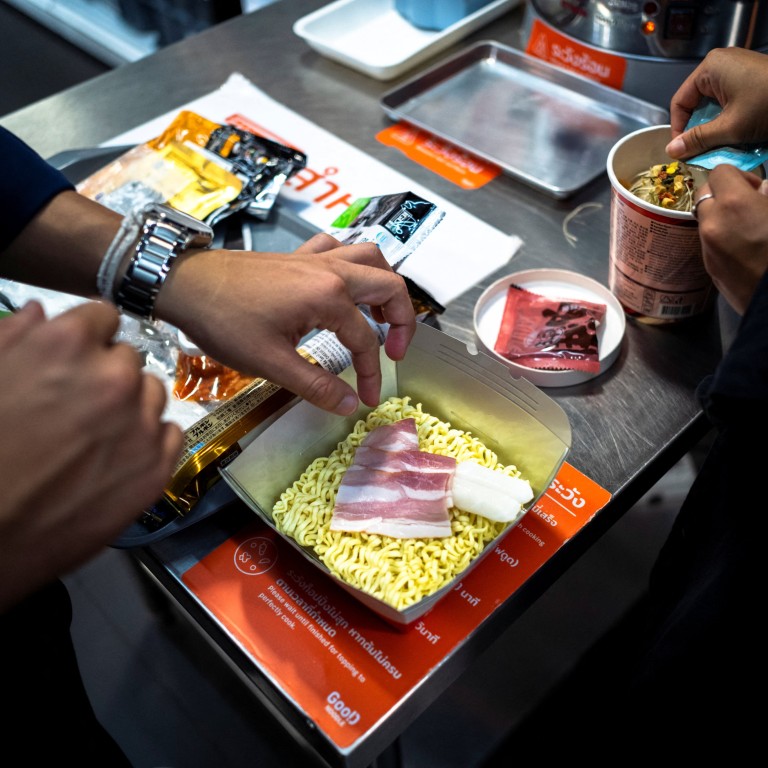
Thailand noodle makers plead to raise prices for 1st time in 14 years – by 6 US cents
- Instant noodles have long been a staple for low-income households and are among Thailand’s controlled goods because of their importance
- Domestic producers have been selling their benchmark packs for 17 US cents each since 2008, but rising costs are starting to bite
Thai instant noodle makers have petitioned the government to let them raise retail prices for the first time in 14 years, saying higher production costs have cut their returns.
The five domestic producers have been selling their benchmark packs for 6 baht (17 US cents) each since 2008. The companies are seeking to raise the retail price to 8 baht (23 US cents) to meet rising costs, said Pun Paniangvait, a senior manager representing Thai President Foods Pcl, which produces the Mama brand.
“None of us wants to sell at higher prices since it’s already highly competitive to sell at 6 baht per pack,” Pun said, after submitting a letter on behalf of all five firms to the Commerce Ministry on Tuesday. “But we all agree that costs that have already risen will not go down this time.”
There are multiple categories of instant noodles. Those at the most basic level are highly controlled by the government by law, but noodle makers have often got around controls by introducing new products, especially those in premium categories.
‘Hell on earth’: can the world spend its way out of the global food crisis?
Prime Minister Prayuth Chan-ocha told reporters after the weekly cabinet meeting that the issue “needs to be jointly considered and discussed”.
“We’ll have to keep asking until they agree with us,” he said.

